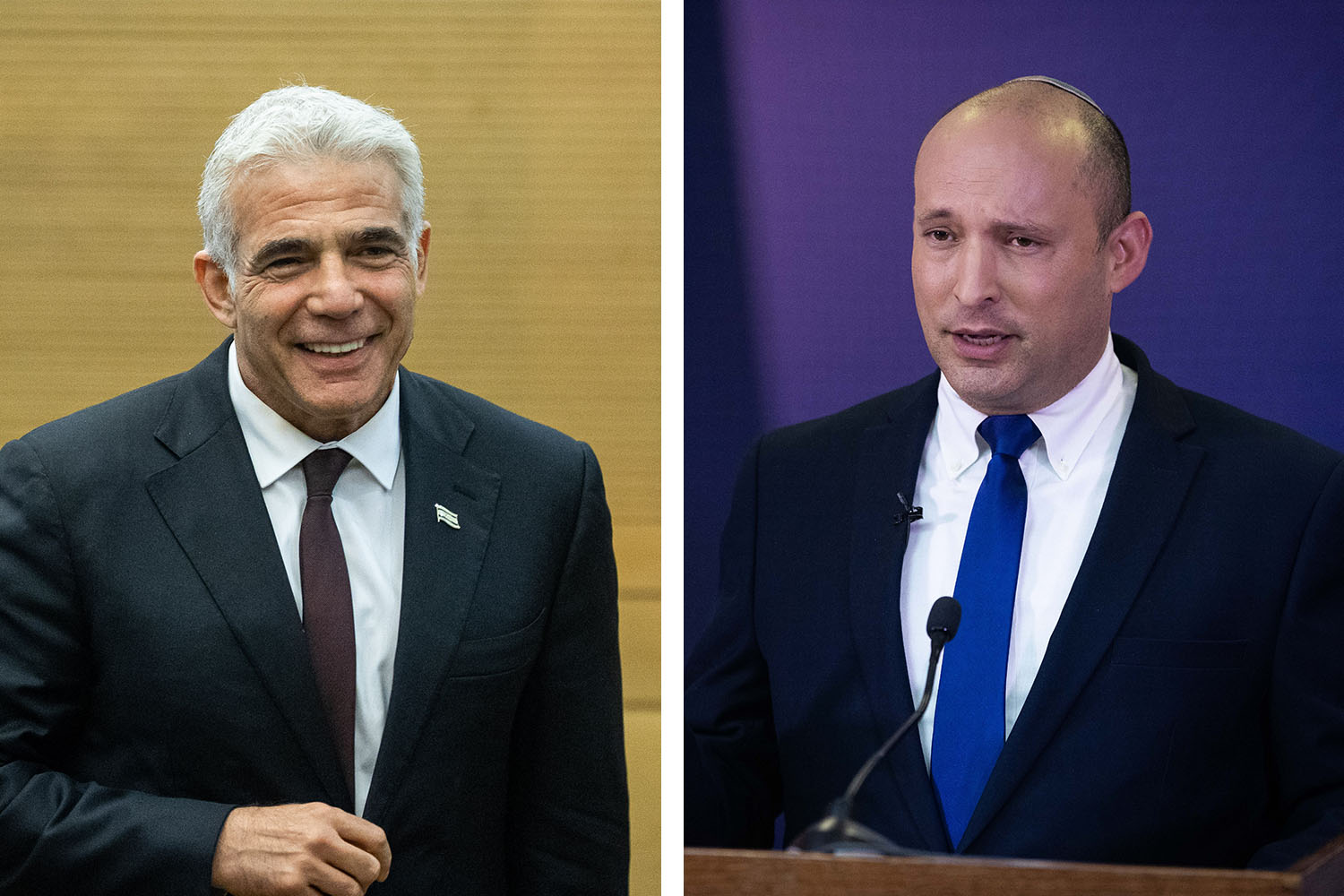
After gymnast Artem Dolgopyat won a gold medal at the Olympics last week, Israeli news exploded — not just with coverage of artistic gymnastics, but also with difficult discussions about the integration of immigrants from the former Soviet Union. In a radio interview with Dolgopyat’s mother, Angela Bilan, journalist Ben Caspit asked Bilan whether she was expecting grandchildren. Bilan replied that before she could have grandchildren, her son would have to get married, which is not possible in the country. Dolgopyat, it turns out, is Jewish only on his father’s side. Orthodox law does not recognize Dolgopyat as a Jew, and since only religious marriage is legal within Israel, Dolgopyat is not legally able to get married. The fact that his spouse is a non-Jewish Belarussian citizen only makes the situation more intractable.
Davar sat down with Katya Kupchik, content and media director at Israel Hofsheet – Be Free Israel, to discuss the public conversation around Dolgopyat and its broader implications around religious pluralism in Israel. Israel Hofsheet – Be Free Israel is a grassroots movement that promotes religious pluralism and civil liberty, and one of its major campaigns calls for allowing civil marriages.

“Caspit was surprised to hear [of Dolgopyat’s inability to marry,]” said Kupchik. “I think he recognized a dissonance. A man gives his all in order to win an Olympic medal as a representative of Israel, and when he returns home he’s not even allowed to marry in his own country.”
Ineligible to marry in their own country
Whether or not Bilan intended to open this Pandora’s box, the interview brought to light a long-standing injustice: hundreds of thousands of Israelis who statutorily have no religion and are therefore ineligible to marry within Israel. According to data presented last week by Professor Ze’ev Hanin of Bar-Ilan University, who serves as senior researcher at the Ministry of Absorption, there are about 400,000 Israelis who cannot marry in Israel because they are not recognized as Jews by the Rabbinate. This number does not include Christian, Muslim, Druze, or Baha’i Israelis, who are able to marry in Israel according to each religion’s legal framework.
The majority of these 400,000 Israelis with no legal religious status are immigrants or children of immigrants from the former Soviet Union. Since 1990, more than a million residents of the former Soviet Union have moved to Israel thanks to Israel’s Law of Return, which allows every Jew the opportunity to become a citizen of the State of Israel. In 1970, the Law was amended to clarify the relevant definition of “Jew” — in this case, Israeli law followed the definition of Judaism put forth by Nazi Germany and defined a Jew as anyone with one or more Jewish grandparents. In recent years, immigrants to Israel who are not considered Jewish according to the Rabbinate have outnumbered those who are considered Jewish. The discrepancy between the broad definition of the Law of Return and the narrow definition of the ultra-Orthodox, who control the marriage system, has led to this quagmire.
What with new waves of immigration and a new generation being born to those already without a religious status, the population of Israelis of no legal religion is growing by 4,000 every year. That being said, it is impossible to estimate how many couples there are made up of at least one Israeli of no legal religion who are therefore barred from marrying.
Only a decade ago, the Israeli marriage system’s exclusion of those not considered Jewish was not an issue on the public agenda, according to Kupchik. Even within communities from the former Soviet Union, the topic was rarely discussed. But things have changed.
“Civil marriage is one of the most popular topics,” Kupchik said. “Three different campaigns during the last election dealt with it. Artem’s story is circulating in thousands of Russian-speaking groups, and a social media post we made about the case in Israel Hofsheet – Be Free Israel received unprecedented exposure.”
Alternatives to the Rabbinate
For couples who are not eligible for legal marriage within Israel, the alternative is to get married without the involvement of the Rabbinate.
“There are two ways,” explained Kupchik. “Either through organizations that officiate marriages outside the Rabbinate — but then the marriage is not legally recognized — or abroad. Anyone who is registered in another country as a married couple is also recognized as married in Israel.
“About 700 couples get married every year with Havaya [a project affiliated with Israel Hofsheet – Be Free Israel that officiates non-rabbinic Jewish weddings.] Couples who get married with Havaya can design an equitable wedding ceremony outside the Rabbinate and sign an affidavit affirming their partnerships before volunteer lawyers. The Reform and Conservative movements also hold non-state recognized marriage ceremonies, as do several other organizations. Other couples simply enter into common-law marriages by living together as spouses, without any legal declaration or ceremony.”
It’s unclear just how many Israelis choose to get married abroad, as not all couples report their marriage status to the Ministry of the Interior upon their return to Israel. The number of couples in common-law marriages is also unknown.
“The state is not keeping track of this. These are couples under the radar,” Kupchik said.
According to Yotam Brom, CEO of Panim, an organization devoted to developing Israeli Judaism, about 5,650 people reported getting married abroad during 2018. The best estimates suggest that weddings abroad are actually significantly underreported and about 12,000 Israelis marry abroad each year. It is unclear what proportion of these weddings are held abroad because the couple is ineligible to marry in Israel or because they do not want to marry in the Rabbinate. In addition, over 2,600 non-rabbinic ceremonies were held in Israel in 2018. About a third of those weddings were of couples from the former Soviet Union, more and more of whom are marrying outside the Rabbinate.

“The Rabbinate is complaining that they’re officiating fewer and fewer weddings,” Kupchik said. “They say fewer people are getting married, but actually there are just a lot of ceremonies outside the rabbinate. That’s the trend, and it’s consistent."
In 2016, then-Knesset member Ksenia Svetlova of the center-left Zionist Union took to the Knesset podium wearing a wedding dress, with a bill to fund weddings abroad for couples who are unable to marry in Israel.
“If the state does not allow every Israeli citizen to marry, and forces many Israelis to marry abroad, the state will bear the expense,” Svetlova said.
Indeed, weddings abroad can come at a high cost, mostly dependent on the choice of destination.
“If a couple gets married in an Elvis-style wedding in Las Vegas, the plane tickets will cost them three times as much as tickets to Prague, which is a particularly popular destination,” Kupchik said. “Cyprus, an equally popular destination, is cheaper. It is at least a few thousand shekels [at least $1000]: a hotel, two planes tickets, and usually people also bring friends make it less lonely. Of course, for most couples it does not end there and a large [unofficial] wedding is also organized in Israel.”
Civil marriage as an expression of Jewish values
For Kupchik, the struggle for civil marriage is a fight to uphold Jewish values as well as liberal values.
“A Jewish state that encourages immigration cannot say to itself that it only approves a certain type of Jew and rejects everything else,” Kupchik said. “Dividing the Jewish people into castes within Israel is a huge mistake. We must create a common camp.
“It is okay for the people of Israel and the State of Israel to have several parallel communities, each of which can have its own rabbinical institution. But there is an issue here that goes beyond marriage, but the question of who is a Jew. Surely if we are the center of the Jewish world, we cannot afford to reject so many members of the Jewish people.”
To date, there have been several bills to institutionalize civil marriages, as well as a number of appeals to the Supreme Court. The Civil Union Law of 2010 allowed couples to be recognized as members of a civil union through the Ministry of Justice rather than the Rabbinate, but according to Kupchik it is not a solution.
“This is a law that allows two partners who are understood by the Rabbinate not to be Jewish to go through a bureaucratic procedure that states that they do not belong to any religious community, and only then do they [form a civil union] and register with the Ministry of Justice,” she said. “This is a law that very few people can or want to use.”
A number of Israeli municipalities, including Tel Aviv, have tried in recent years to allow all self-declared couples to receive the same municipal services as legally married couples without having to marry through the Rabbinate. These initiatives, which were mostly announced in connection with LGBT pride events, led to a number of petitions being filed in the courts. The answer was always the same: marriage is in the hands of the state.

“Ultimately, there is one body that is responsible for promoting equality and equal rights, and that is the state,” Kupchik said. “It really does not matter if Norway or Utah or another planet agree to marry Israeli citizens. We are not supposed to send our citizens to ‘beg from the neighbors.’ Just as a state provides its citizens with security, health, education and transportation, it should also allow its citizens to legally marry, and without them going through a religious establishment against their will.”
Kupchik dismissed the idea of civil marriage becoming legal through municipal initiatives or appeals to the Supreme Court.
“The change must go through the Knesset and must be a clear statement of the state,” Kupchik said. “There must be a regular civil path to marriage, right alongside the religious route.”
Support across the political spectrum
The ultra-Orthodox opposition to civil marriage, at least at the level of official leadership, is unequivocal. But among the non-ultra Orthodox religious Zionists, a debate is beginning to emerge around the amount of control the Rabbinate exerts over the state.
“There is a long-running struggle over who holds the keys to religion in Israel. There is a theological and national debate about the degree of involvement in the state and other such questions,” Kupchik said. “[Prime Minister] Naftali Bennett and [Religious Services Minister] Matan Kahana [both of the New Right party] are both trying to flex their muscles at the Jewish religious establishment.”
According to Kupchik, the struggle for civil marriage also has supporters on the conservative side of the political spectrum, from Bennett’s right-wing New Right party to the conservative faction in the centrist Blue and White alliance.
“Among Bennett, [Deputy Prime Minister] Gideon Sa’ar [of the center-right New Hope party] and Blue and White voters, of which quite a few are religious, there is significant support for the promotion of civil marriage,” Kupchik said. “Religious Zionism, which has a strong ethos promoting a common state and a shared life within that state, understands that the state has an obligation to provide the minimum for the people it has called to come live here. Not all of them not directly address the issue, but it is important for them to challenge the ultra-Orthodox Rabbinate.”

The mainstreaming of the civil marriage issue is exemplified by the choice of Tourism Minister Yoel Razvozov of the centrist Yesh Atid party to speak out about Dolgopyat’s plight. Razvozov, who is himself a former Olympic judoka, said in an interview this week that he believes his party to have a consensus supporting civil marriage and that “the current coalition can pass such a law, despite the objections that will arise.”
Kupchik, however, is not totally confident.
“I can’t say with certainty whether the Civil Marriage Act will pass in its entirely, but one can hope for a breakthrough on the issue,” she said. “Once the budget is passed and the government establishes itself, it will have little choice but to deal the issue and provide a solution for the citizens who desperately need one.”






